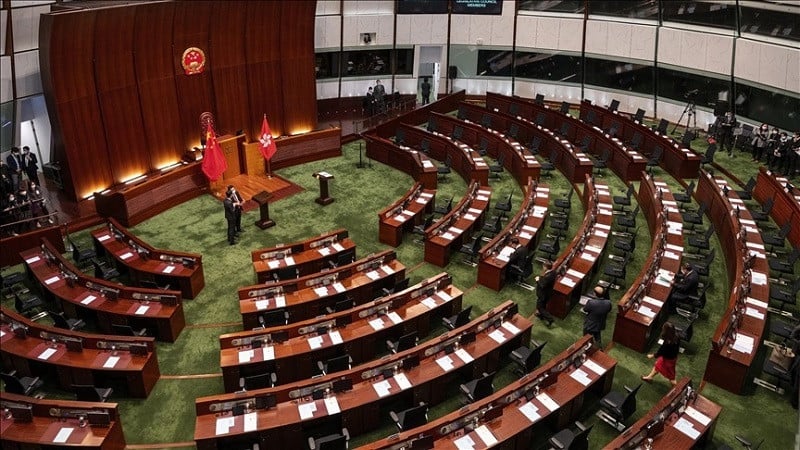ISTANBUL: On Tuesday, legislators in Hong Kong passed a domestic national security bill with unanimous votes, marking the first such passing of a bill since China reclaimed the semi-autonomous city in 1997.

The bill was approved by all 89 legislators and will go into force on Saturday.
The Safeguarding National Security Law, when it becomes operative, would encompass 39 offences categorised into five groups: treason; insurrection; acts with seditious intention; sabotage; external interference; theft of state secrets; and espionage.
The 212-page draft was presented to the Legislative Council for discussion and a vote early this month under Article 23 of the Basic Law of China’s semi-autonomous province.
The Hong Kong Free Press claims that in an uncommon move, President Andrew Leung of the council also participated in the voting process.
“Under normal circumstances, as the president of the Legislative Council, I would not cast a vote,” Leung declared. “But at this historic moment, I will vote in favour of the bill because Article 23 legislation is not just any other piece of legislation; it relates to national security in Hong Kong and is of the utmost importance.”
The law states that defence, diplomacy, foreign policy, national security, and advancements in the economy, society, and technology are all considered state secrets.
Extended custody without charges
The new rule imposes life sentences on anybody found guilty of treason, insurrection, sabotage by “colluding with external forces,” or encouraging a mutiny among Chinese military personnel. anybody found guilty of unlawfully divulging state secrets face a 10-year prison sentence.
Additionally, it gives the court the authority to hold any suspect for one week without charging them, with the option to extend that period for a second week, for a total of 16 days.
At the moment, there is a 48-hour limit on how long someone can be detained by the government before facing charges.
Police can even request that courts prevent suspects from hiring “particular lawyers” under the new rule if doing so could jeopardise national security.
According to the law, “safeguarding national sovereignty, security, and development interests is the highest principle of the One Country, Two Systems policy.”
After a year of protests against the local government in 2019, Hong Kong—once considered the world’s most attractive corporate destination and the freest city—saw significant political and security developments.
China implemented a contentious national security law in July 2020 and modified the process for holding local elections for the Legislative Council and District Council.
In accordance with the Basic Law and international treaties that govern Hong Kong, the new law further suggests that human rights “are to be respected and protected, including the rights to free speech, freedom of the press and publication, freedom of association and assembly as enjoyed.”










































